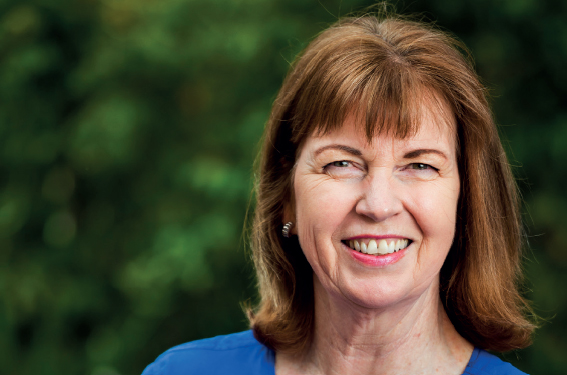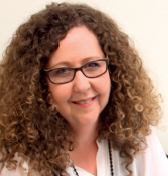21 July 2020
Article from July 2020 INPractice
The title of the popular British TV Show, ‘Call the Midwife’, evidently offers some sage advice.
“All the evidence shows that it’s the right thing to do,’’ says medical professional Pam Adelson.

“Many studies and trials have shown women who have received midwife care are less likely to have a Caesarean section, the clinical outcomes are just as good, the costs are the same and women prefer it,’’ she says.
A Registered Nurse, Ms Adelson is also a Research Fellow in the Rosemary Bryant AO Research Centre, an organisation dedicated to strengthening the nursing and midwifery profession through the development of evidence-based health care.
She says South Australia has the highest number of midwifery-led births in the country as recorded through Birth Centres.
“South Australia has been a leader in promoting midwifery-led care and midwife continuity of care.
We’ve seen a doubling over the past two decades in the proportion of women receiving midwifery-led care.
“It has increased from 8% in 1998 to now 19 per cent of all births, which is really encouraging.’’
Ms Adelson, also a member of Mothers, Babies and Families Health Research Group, began her career as a Registered Nurse in the US, completing her Bachelor of Science in Nursing at the University of Hawaii. After graduating with a Masters of Public Health at the University of Sydney she went on to work in maternal and perinatal epidemiology and public health policy with the NSW Health Department.
“We emigrated to Australia in 1988. My husband is a scientist and he accepted a three-year position with the CSIRO in Sydney, so it was going to be a three-year contract and it sort of turned into 30 years,’’ she laughs.
Ms Adelson and Associate Professor Lois McKellar’s research about the evolution of midwifery-led care over the past two decades in South Australia will be presented at the ANMF (SA Branch) Annual Professional Conference in October.
Assoc Professor McKellar has been a senior lecturer and Program Director for the Bachelor of Midwifery at the University of South Australia for six years and was recently awarded the SA Nursing and Midwifery Excellence Award for excellence in Midwifery practice.

“With the medicalisation of birth, a lot of women didn’t like coming into hospitals and were having home births,’’ Ms Adelson said. “Most of these were fine but there were some cases, as in any profession, where there were problems.
“What happened was women, the medical profession and the midwifery profession all said ‘look, we need to have birthing alternatives and not just the medical model of birth or home births, because there weren’t many other options.
“The Federal Government funded what was called the Alternative Birthing Services Program in the late 1980s and Birth Centres were established within hospitals. A lot of women, they wanted to be near their midwives, but they didn’t necessarily want to have a home birth. What they wanted to have was a midwife who could be with them but in a hospital environment.
“So, you had the birth centres and the midwives were leading that care. They would come to the hospitals; they would stay with the mothers … the women just loved it. The birth centres were all booked to capacity.
“So, it was really driven by women wanting the choice, wanting to be able to have a birth with a care provider that they knew and trusted.’’
“It’s (birth) a major life event for women and depending on the experience it can be very empowering or it can be a very distressing experience,’’ Ms Adelson said.
“Women want more control. Some of the research we’ve been doing at the Rosemary Bryant AO Research Centre is to look at choices and what sort of choices women have.
Often women aren’t given a choice or they’re not informed of a choice. Midwives are very good at informing women and embracing shared decision making.
They inform women, they actually work out a plan with women, on how they want the birth, they support them through that process and if they have any complications they’re fully trained and very professional and they get help when they need it.
“They stay with that woman, they support her and the women love it.”
The ANMF (SA Branch)’s Annual Professional Conference
Wednesday, October 14, and Thursday, October 15
At the ANMF (SA Branch) Conference Centre
191 Torrens Road, Ridleyton,
South Australia.
Research on the evolution of midwifery-led care over the past two decades in South Australia will be presented on day two of the conference.
Click
here to read the July 2020 edition of INPractice.